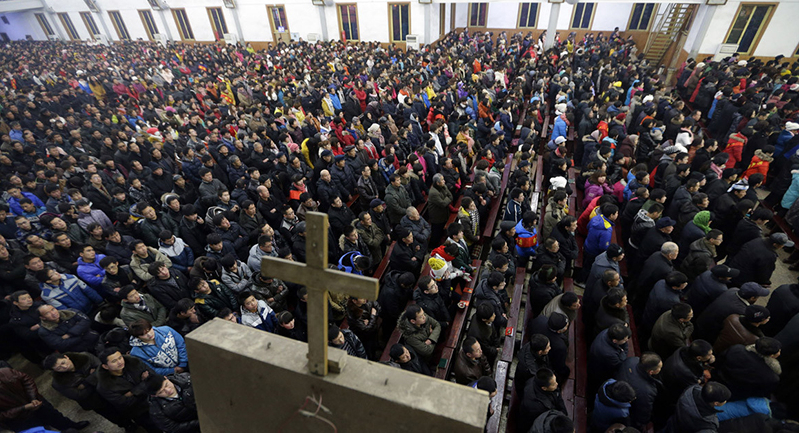
Christianity's stronghold was historically based in the United States and Europe. However, while many in the West embrace secular values at their own peril, countries in Africa and Asia have become to embrace Christianity.
According to Dr. Susan Berry of Breitbart, the church is thriving in Africa and Asia while its decline continues in the U.S. and many parts of Europe. John L. Allen Jr. of Crux reported back in October 2014 on that shift.
"[African bishops] no longer regard themselves as junior partners in Catholicism Inc.," Allen wrote. "This time, they're ready for the board room."
Allen observed that when liberal German bishops tried to push their agenda, including a "more compassionate tone overall on sexual morality" and a more permissive position on "giving Communion to Catholics who divorce and remarry outside the Church," the African bishops pushed back hard on those concepts.
"The message has gone out that this is what synod is saying, this is what the Catholic Church is saying, but that's not what we're saying," Cardinal Wilfrid Fox Napier of South Africa said. "It's not true ... that this synod has taken up these positions."
Berry reported that the pushback has even extended to the U.S., where African bishops have stood up to President Barack Obama's positions on abortion and same-sex marriage. In contrast, some American bishops have tried to "cooperate" with the government on those issues.
"Those people who have already ruined their society...let them not become our teachers to tell us where to go," Cardinal John Njue of Kenya said in response to Obama's statements endorsing same-sex marriage. "I think we need to act according to our own traditions and our faiths."
According to Berry, African bishops also spoke out against Ireland's vote on legalizing same-sex marriage. They urged families to be courageous and uphold "Catholic values regarding the family" while turning away "atheism and secularism."
"[The United States] has shifted left over the past 15 years, a direction that finds it now engulfed in moral relativism and embracing behaviors previously considered unacceptable and even sinful," Berry wrote, citing a Gallup poll.
Berry contended that the shift toward secularism has led to lower birth rates and fewer young people in the U.S. and across the Western world. However, Africa and India are experiencing population explosions.
"Most Western countries, including the United States, are projected to see the segment of their population that is 65 and older exceed its 15 years or younger group by 2050," Berry wrote, citing Pew Research. "This means there will be fewer people of working age to care for an increasing number of people dependent on human and government assistance."
The growth of Christianity has even extended to places like China. Tom Phillips of the Telegraph reported back in April 2014 that despite the fact the Communist party officially considers China as an atheist nation, many have been trying to find spiritual meaning not supplied by that party's ideology or the capitalist system.
"By my calculations China is destined to become the largest Christian country in the world very soon," sociology professor Fenggang Yang of Purdue University said. "It is going to be less than a generation. Not many people are prepared for this dramatic change."
According to Phillips, China's total Christian population could exceed 247 million people by 2030, which would be more than Mexico, Brazil and the U.S.
"Mao thought he could eliminate religion. He thought he had accomplished this," Yang said. "It's ironic - they didn't. They actually failed completely."
On the other hand, Tom Hoopes of Aleteia argued that the secular West is "in for a rude awakening."
"The party morals we are living make a lot of noise, but they have no future," Hoopes wrote. "It is only a matter of time before we realize we have no clothes on, and no one coming after us, and that we are running down an empty street in the dark."
Hoopes added that it was "scary" to watch "the dying West celebrate its decadence."
"The truth is, life for Christians in the West will get much worse before it starts getting any better," Hoopes wrote.






